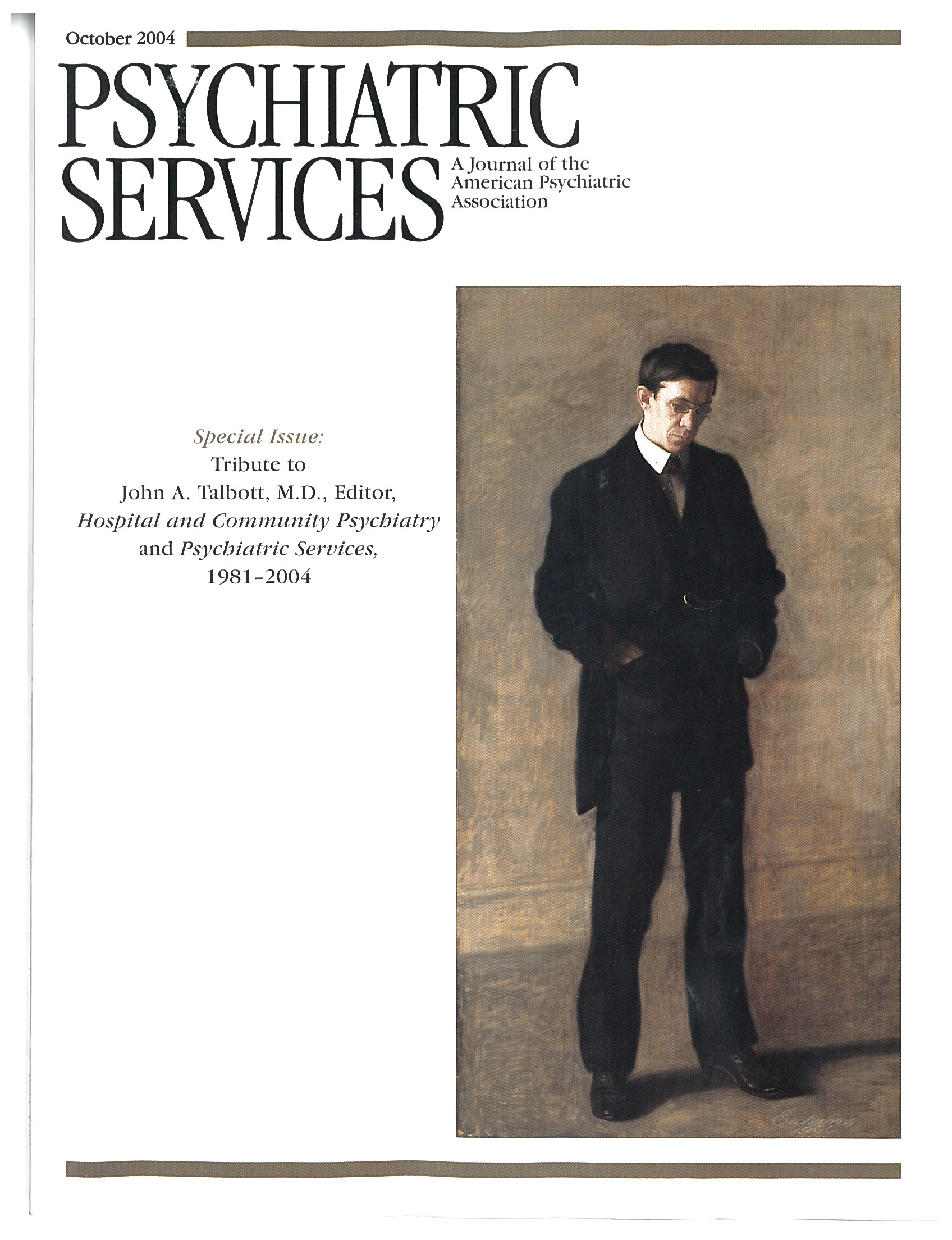To the Editor: At the outset of my psychiatric training, John Talbott was the first faculty member I met who was committed to the principles and practices of community psychiatry. At the Payne Whitney Clinic, at that time, there were not many others who shared those interests. John was deeply interested in the provision of reasonable care to patients who were chronically mentally ill, often impoverished, and generally underserved. He was even interested in patients who had drug and alcohol abuse and dependence problems. Whereas organized psychiatry and psychiatrists were often reluctant to accept responsibility for the care of these apparently unattractive and perhaps incurable patients, John recognized that the drug use disorders were inextricably intertwined with other acute and chronic psychiatric conditions. He well understood the remarkable prevalence of comorbid disorders and actively sought interventions that might be effective on a large scale.
And John is unique in the way he communicates his interests and enthusiasms. He is a charismatic, generous, and powerful leader and teacher. He brought me and many others in, and encouraged my involvement in committees, in the journal, and in our peerless board examiner group. That examiner group was a thing of beauty—responsible, incredibly hard working, and really fun, just like John.
I believe that John Talbott has significantly influenced the care of underserved patient populations and enhanced the pool of interested academic and clinical psychiatrists who care for these individuals.
Dr. Millman is the Saul P. Steinberg distinguished professor of psychiatry and public health and chief of the division of community and public health programs at Cornell University's Joan and Sanford I. Weill Medical College in New York City.



